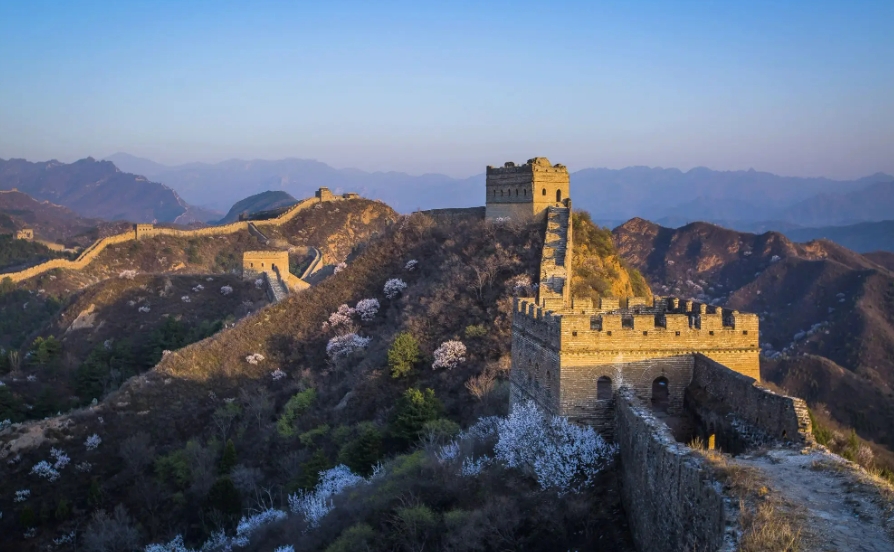
Was the Great Wall Pointless?
The Great Wall of China, a monumental testament to human ambition and ingenuity, snakes across the landscape for thousands of miles. Constructed over centuries, it stands as a powerful symbol of Chinese civilization and its unwavering resolve against invasion. But was this colossal undertaking ultimately in vain? Was the Great Wall, despite its awe-inspiring scale, a pointless endeavor?
The Chinese built the wall as a masterpiece of defensive architecture, and while Chinese troops controlling these barriers certainly helped to thwart the attacks of some would-be invaders, the Great Wall was by no means impenetrable. Its effectiveness was limited by several factors:
1. Gaps in the Wall: The Great Wall wasn't a continuous structure. It was built in sections, often with natural barriers like mountains and rivers incorporated into its design. These gaps, however strategically placed, provided potential entry points for determined enemies.
2. Height and Materials: While imposing, the Wall's height varied considerably throughout its length. Additionally, sections constructed from rammed earth and rubble were more susceptible to damage and breaches compared to the more robust stone sections.
3. Manpower Requirements: Effectively guarding the entire length of the wall required a massive and constant deployment of soldiers. This logistical challenge often proved difficult, leaving stretches undermanned and vulnerable.
4. Circumventing the Wall: History tells us that the wall was breached numerous times. Enemies, through cunning strategy, bribes, or sheer force, found ways to bypass, overcome, or even destroy sections of the wall, ultimately reaching their targets. For example, the Manchu, who eventually conquered China and established the Qing dynasty, successfully bypassed the wall by exploiting political weaknesses within the Ming Dynasty.
However, to view the Great Wall solely through the lens of military success is to overlook its broader significance. The Wall's impact extended beyond its physical presence:
1. Psychological Warfare: The very existence of the Great Wall served as a potent psychological deterrent. Its sheer scale communicated strength and resolve to potential invaders, discouraging smaller incursions and raids.
2. Control of Trade and Migration: The Great Wall provided a means to regulate trade routes and control the movement of people, both within and outside the empire. This regulation brought economic benefits and helped maintain social order.
3. Communication and Surveillance: Watchtowers strategically placed along the wall facilitated communication and early warning systems. Soldiers could quickly transmit messages and signal the approach of enemies, allowing for faster mobilization of troops.
4. A Symbol of Unity and Strength: The construction of the Great Wall itself was a unifying force for China. It demanded immense manpower and resources, fostering a sense of shared purpose and national identity among the Chinese people.
In conclusion, while the Great Wall might not have always been an impenetrable barrier, to deem it pointless is a gross oversimplification. Its impact extended beyond military successes and failures. The Great Wall stands today as a testament to human ingenuity, a symbol of cultural unity, and a reminder of the enduring struggle for security and stability.
Q&A:
1. Was the Great Wall ever effective in stopping invasions?
Yes, the Great Wall did help to deter smaller-scale invasions and raids, especially from nomadic tribes. It also provided valuable time for Chinese forces to mobilize and respond to threats. However, it wasn’t entirely impenetrable and was breached on several occasions by determined enemies who found ways to circumvent, overcome, or destroy sections of the wall.
2. Why was the Great Wall built if it wasn't entirely effective?
Beyond its military role, the Great Wall served as a symbol of Chinese power and unity, helped regulate trade and migration, and provided a crucial communication and surveillance system. Its psychological impact on potential enemies should not be underestimated.
3. What can we learn from the Great Wall today?
The Great Wall teaches us about the complexities of history and the limitations of solely relying on physical barriers for security. It also speaks to the human capacity for innovation, collaboration, and the enduring desire for protection and stability. The Wall serves as a reminder that true security often requires a multifaceted approach that considers cultural, economic, and social factors in addition to military might.